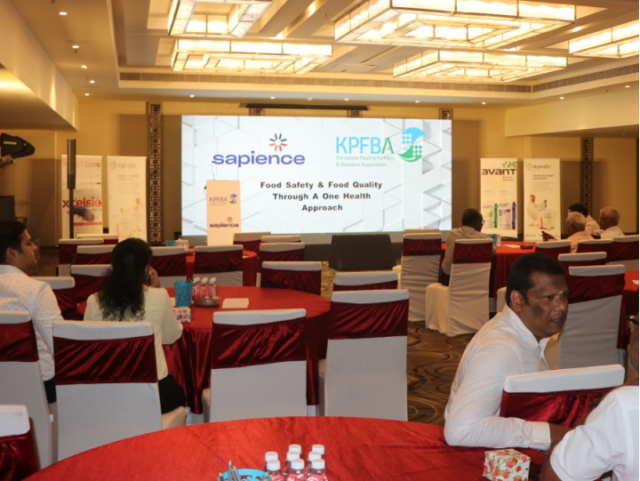
One Health & the nature of interconnectedness
The Karnataka Poultry Farmers & Breeders Association was proud to associate with Sapience Agribusiness Consulting in organising a knowledge session on 20th October 2022 at Courtyard by Marriott in Hebbal, Bengaluru. The theme of the knowledge event was One Health and the nature of interconnectedness between Human Health, Animal Health, and The Environment.
The esteemed speakers and panellists enlightened the audience about the One Health approach to achieve optimal health outcomes by recognising the interdependence and the fragile balance between people, animals, plants, and their shared environment. And at the end of the seminar, the audience was better informed on impact issues, such as the prudent use of antibiotics and the trickle-down effect of antimicrobial residues in animals on human health.
Dr Sushant Rai, the respected President of KFPBA, brought the meeting to order and established the significance and importance of the knowledge session’s theme. Mr Prashant Kumar (Director, Sapience) hosted the event and kickstarted the programme with an overview of One Health.
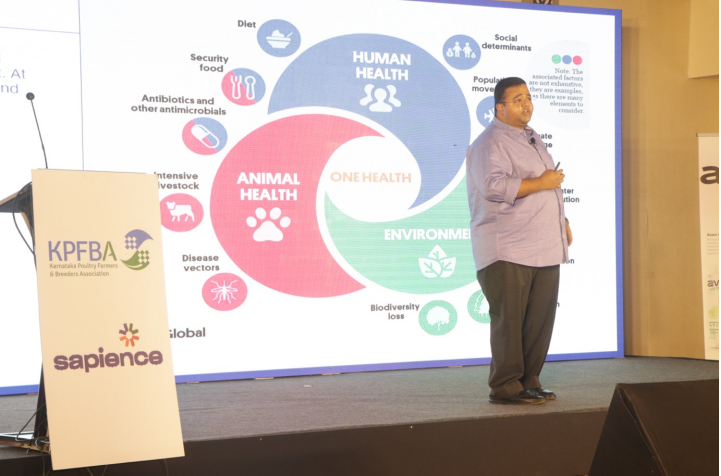
Dr G.B. Puttanaiah, Chairman of the technical committee of KFPBA, provided a keen overview of the session and drew attention to the importance of working together to preserve our interconnected ecosystems and the need to understand emerging diseases in poultry farming. He then asserted the need to evaluate and prudently use antibiotic alternatives, such as bacteriophages.
The need for safe poultry production
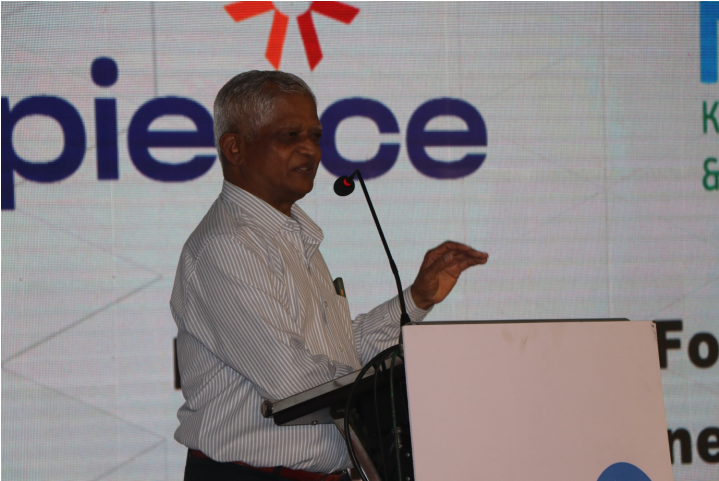
The first keynote speaker was Dr Raman Muthuswamy. Dr Raman is a professor and former head of parasitology at TANUVAS. He was also the national coordinator at the UK Research and Innovation Programme for One Health representing poultry in India. Dr Raman spoke on the need for safe poultry production, the importance of prudent usage of antimicrobials, and the relevance of the One Health programme. In addition, Dr Raman discussed the importance of feed quality control and summarised the drivers of quality control of poultry feed in achieving food safety and quality.
Salmonella Infantis in broilers and the impending food safety issues
The second keynote speaker was Dr Filip Van Immerseel. Dr Filip is a Research Professor at the University of Ghent and the head of the gut health team at Ghent. An authority on bacterial intestinal challenges in broilers and breeders, Dr Filip, spoke on the dominant strains of Salmonella and their impact on food safety and, importantly, threw light on emergent strains such as Salmonella Infantis in broilers and the impending food safety issues in the context of One Health.
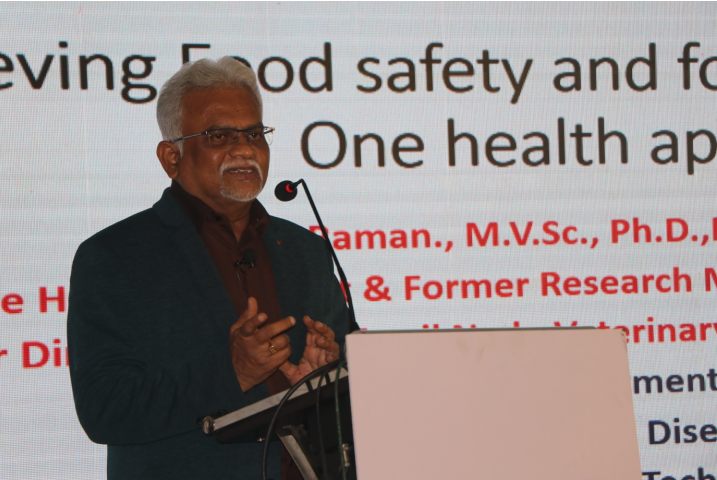
Dr Filip went on to outline the impact of Clostridium Perfringens and Staphylococcus Aureus on broiler health and the various nutritional strategies as alternatives to antibiotics to facilitate gut health. Dr Filip also spoke about butyrates and bacteriophages as effective replacements to antibiotics to maintain gut microbiota equilibrium.
Impact of bacteriophages – an effective prophylactic replacement to AGPs
The third keynote speaker was Edgar Shin, the CEO of CTC Global. CTC Global is at the forefront of bacteriophage research and its application in animal health. First, Edgar introduced Xcelsio, a feed additive bacteriophage which is an effective prophylactic replacement to AGPs. Next, he explained in detail the lytic mode of action of bacteriophages. Finally, rounding off his presentation, Edgar presented the global research studies on the impact of bacteriophages on various strains of E. Coli, Salmonella, C. Perfringens, and S. Aureus.


Panel discussion on One Health
A panel discussion on One Health followed the keynotes. The panellists were Dr Giridhar Gopala (a medical doctor who works with the One Health Trust, USA), Prof. A. Natarajan (a professor of animal nutrition who heads the animal feed analytical and quality assurance laboratory at Namakkal Veterinary college), Dr Raman Muthuswamy, Edgar Shin, and Dr Gopi M (NIANP). The panel discussion was moderated by Dr Mahesh Subhash Patlapati, who serves as the joint commissioner and Director of CPDO&TI, GoI.
Dr Mahesh spoke about the interconnected nature between human health, the environment, and animals and how, at the global level, four organisations, UNEO, FAO, WHO and WOAH (formerly OiE), are coming together to understand and find measures to attain One Health.
Dr Giridhar Gopal, who represents the One Health Trust, a global think-tank on AMR, spoke of the importance of understanding the various drivers of a silent killer, i.e., Antimicrobial Resistance in humans and how AMR will soon be the largest cause of death in humans. He spoke of integrating the three sectors working in different silos–Human Health, Animal Health, and the Environment.
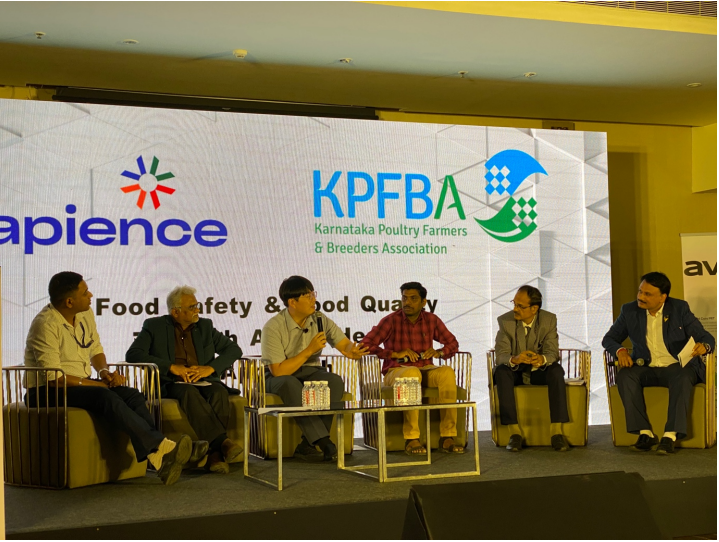
Dr A. Natarajan spoke from an animal nutrition perspective. He informed the audience of how feed quality causes gut health problems, leading to higher antibiotic usage. He then implored the need to focus on high-quality feed ingredients and high-quality feed as an input measure to reduce antibiotic use in animals. Through his primary research on AMR, Dr Gopi highlighted the alarming growth of antimicrobial resistance and espoused the need, as an industry, to gear up with measures cutting down antibiotic use dramatically.
In their closing remarks, Dr Raman highlighted the need for biosecurity. Edgar remarked on the importance and need to use alternatives such as bacteriophages, which he called nature’s solution to AMR. And Dr Natarajan reinforced that antibiotics need not be used in the feed and categorically stated that antibiotics, at low levels, as in the case of AGPs, do not work.
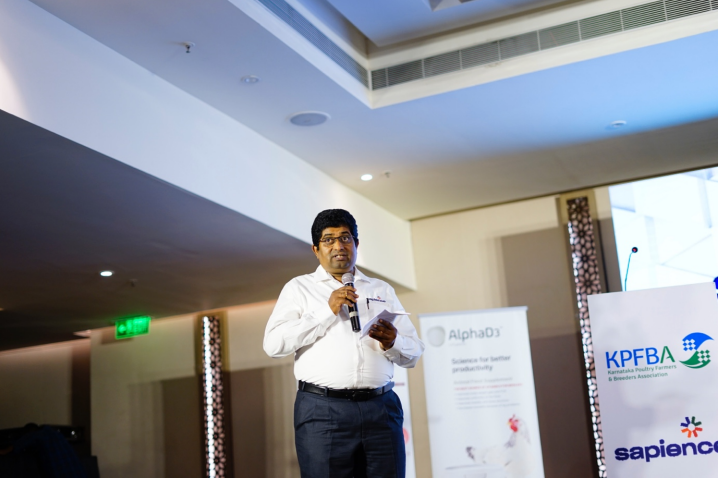
The vote of thanks was delivered by Dr T. Rajaram (General Manager – Sapience).
















